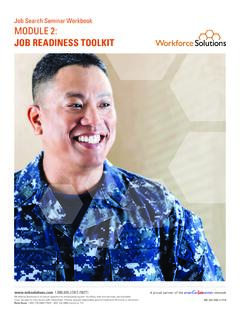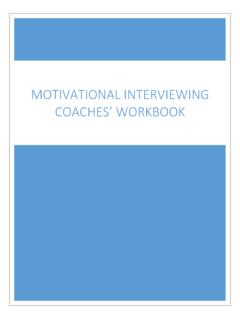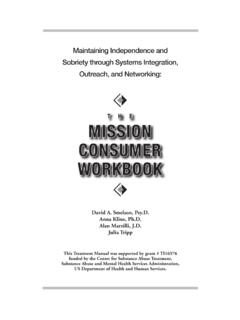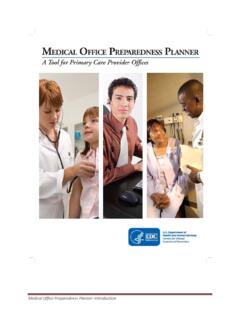Transcription of Lemons or Lemonade Anger Workbook for Teens
1 Lemons or Lemonade ? An Anger Workbook for Teens Jane F. Gilgun, PhD, LICSW Createspace ALSO BY JANE GILGUN Children s Books Busjacked! Emma and her Forever Person Five Little Cygnets Cross the Bundoran Road Patrick and the Magic Mountain The King s Toast The Little Pig Who Didn t go to Market The Picking Flower Garden Turtle Night at Playa Grande Will the Soccer Star Books Child Sexual Abuse: From Harsh Realities to Hope Children with Serious Conduct Issues I Want to Show You: Poems The NEATS: A Child & Family Assessment Manuals Lemons or Lemonade ? An Anger Workbook for Kids Lemons or Lemonade ? A Manual for Professionals and Parents of Kids Lemons or Lemonade ? A Manual for Professionals and Parents of Teens readiness to Adopt Children with Special Needs Jane Gilgun is a professor and writer.
2 She has many articles and assessment tool available on social media websites such as , Amazon Kindle, and Teens and Anger Teenagers get angry. Anger is normal and natural. Teens require the guidance of adults to learn how to express their Anger . That is the purpose of this Workbook : to help Teens learn how to express their Anger appropriately. By appropriately, I mean in ways that foster open communication and do not harm others or the self. Parents and teachers will find the ideas and exercises in this book helpful. When Teens and teachers find that Teens expressions of Anger are too much for them, they may seek the help of professionals. This Workbook is made for Anger management education for young people 13 and older.
3 I wrote this Workbook and the manual for parents and professionals after years of work with families and young people. I saw over and over how angry and hurt many young people are. Some Anger issues are fairly easy to work with. Youth with easy to work with issues may be doing what they have seen others do. Helping young people to express Anger appropriately involves direct instruction from adults as well as long-term relationships with adults who handle their own Anger appropriately. This is uncompli-cated, simple Anger that responds to gentle, yet firm instruction that spells out what is acceptable behavior and what is not. For some young people, Anger is the tip of an iceberg. This is complex Anger . Fear, hurt, frustration, unworthiness, a sense of being bad, and a desire to be on top could be linked to expressions of Anger .
4 For Teens with complex Anger , some pretty bad things have happened, like abuse and neglect, witnessing violence against their mothers, and other traumas such as war, car accidents, and forced migration. Anger is an expectable response to such adversities. Teens ' Anger in these circumstances are expressions of many emotions and not only Anger . They often find that how they express their Anger helps them feel better, but often these are temporary solutions that hurt the Teens and sometimes hurt other people. Reactions such fighting, overeating, cutting, fighting, lying, stealing, and running away are examples. Some of the emotions that underlie Anger and its expression can be hurt, humiliation, frustration, pride, and isolation.
5 Many young people discover that they feel better when they bully others, torment animals, eat a lot, masturbate, or cut themselves. Even young Teens smoke pot and drink alcohol to sooth themselves. Parents and teachers may not know how to help young people who have complex Anger . Some parents have experienced traumas similar to their teen s. If they are overwhelmed by their own issues, they are unable to comfort their teen and to teach and show their teen how to cope. Even if they deal fairly well with their own issues, they may not know how to guide their Teens to more appropriate expression of Anger . Many Teens think they are supposed to be aggressive when they are angry. They ve learned this through watching how their parents and other adults express their Anger .
6 Many Teens think they are supposed to shout at others and hit others when they are angry. They ve seen their parents and other adults do this. Such behaviors seem normal and natural. If these young people have experienced trauma, Anger management is part of a program that Teens and their parents require to deal with trauma and their responses to trauma. Here s an example. A 13 year-old boy didn t start trouble but, when he felt provoked, he attacked. The teachers said he was a good kid who wanted to do well in school, but he couldn t learn to read. He was frustrated about that. The school social worker knew the boy well. He lived with a mother who drank to drunkenness every day. She had a younger son whom the boy thought she favored.
7 Whenever she felt Anger toward her older son, she beat him. He never hit her back. She yelled at him, made fun of the size of his penis, and neglected him. One night, he phoned the police for help when his mother beat him. They arrived right away and took him to the hospital where he stayed overnight. He told the nurses he did not want to go back home. He wanted foster care. His mother said she did not want him home. After two nights in a shelter, child protection returned him to his mother s house. Three days later, she beat him again. He did not call the police. He left the house and walked the streets all night smoking weed. This young person would benefit from the exercises in this Workbook that is part of a program that includes family and trauma-focused therapy and education about trauma, emotions, and relationships.
8 He is a good candidate for tutoring and vocational training where reading skills are not essential. His mother would be difficult to engage in treatment. As long as she is aggressive toward him and neglects him, this boy will continue to have difficulties. If young people are to learn to manage their emotions and behaviors and live happy lives, their parents must change their own behaviors and show them how to live well. Part of learning to cope with trauma related to parental aggression is developing skills to cope with powerful emotions related to rejection and fear. Using this Workbook when family issues go unaddressed may be helpful but would be most effective in a program of treatment that includes trauma-focused family therapy and parental change.
9 Some young people value gang membership. Gangs offer belonging and a sense of family that all persons want. Unfortunately, gangs sometimes get what they want through aggression and violence. Guiding gang members away from violence involves acknowledging the importance of being part of a group while showing alternatives to violence. In other words, what young people want from gangs may be what most people want: respect, a sense of belonging, and a purpose in life. Acknowledging the sources of Teens ' discontent, identifying how Teens currently deal with their discontent, and guiding them toward attaining their goals without hurting themselves or others are goals of this Workbook . Young people can learn to express their Anger in ways that foster communication and that do not harm themselves or others.
10 This Workbook guides teen's Anger toward constructive expressions that turn the Lemons of adversity into Lemonade . Jane F. Gilgun, PhD, LICSW Minneapolis, Minnesota, USA August 30, 2012 Using this Workbook For Teens Anger is an important emotion. It fosters communication and builds relationships when expressed appropriately. What counts is what you do when you are angry. The exercises in this Workbook will show you how to express Anger so that you will feel better and you will not hurt others or yourself. Many of the things in this Workbook will help you build skills that you can use to make a good future for yourself and your family and friends.






